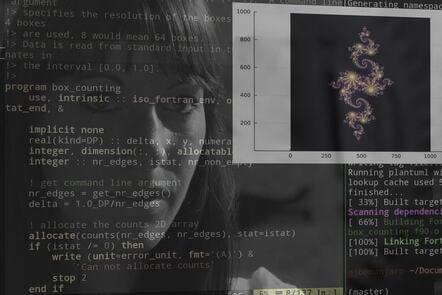MOOC List is learner-supported. When you buy through links on our site, we may earn an affiliate commission.

MOOC List is learner-supported. When you buy through links on our site, we may earn an affiliate commission.
Learn how to use Fortran to solve numerical problems
Alongside computing experts at the Partnership for Advanced Computing in Europe (PRACE), you’ll get the chance to understand how to use modern programming paradigms to solve numerical problems.
This includes how to use object-oriented programming to design efficient and maintainable code, and being aware of potential correctness and performance pitfalls.
Explore data types and scientific computing libraries
Identify the various numerical data types in Fortran (including user-defined types), examine character data and logical data, and delve into functions and subroutines.
You’ll learn what control flow statements are, all about file I/O, and see how Fortran interacts with numerical libraries such as BLAS and LAPACK.
Learn how to program in Fortran
You’ll come away with solid foundational training in Fortran, able to understand Fortran best practices, and aware of what exactly makes it an excellent choice for high-performance computing.
Syllabus
Week 1: Introduction and the basics of Fortran
Week 2: Beyond the basics
Week 3: Object-oriented programming
Week 4: Software engineering and performance aspects
Week 5: Scientific libraries and parallel computing
Learning on this course
You can take this self-guided course and learn at your own pace. On every step of the course you can meet other learners, share your ideas and join in with active discussions in the comments.
What will you achieve?
By the end of the course, you‘ll be able to...
- Develop applications in the field of scientific computing
- Design computationally efficient applications
- Code according to best practices
- Evaluate the performance of your application
- Identify and select the most relevant data structures for your application
- Experiment with various design options
Who is the course for?
This course is for anyone who wants to write code to solve numerical problems or perform simulations. The programmer can focus on the domain, rather than the technicalities of the programming language. This course is also very useful for those who want to extend or to maintain software projects that are developed using Fortran.
MOOC List is learner-supported. When you buy through links on our site, we may earn an affiliate commission.
MOOC List is learner-supported. When you buy through links on our site, we may earn an affiliate commission.
